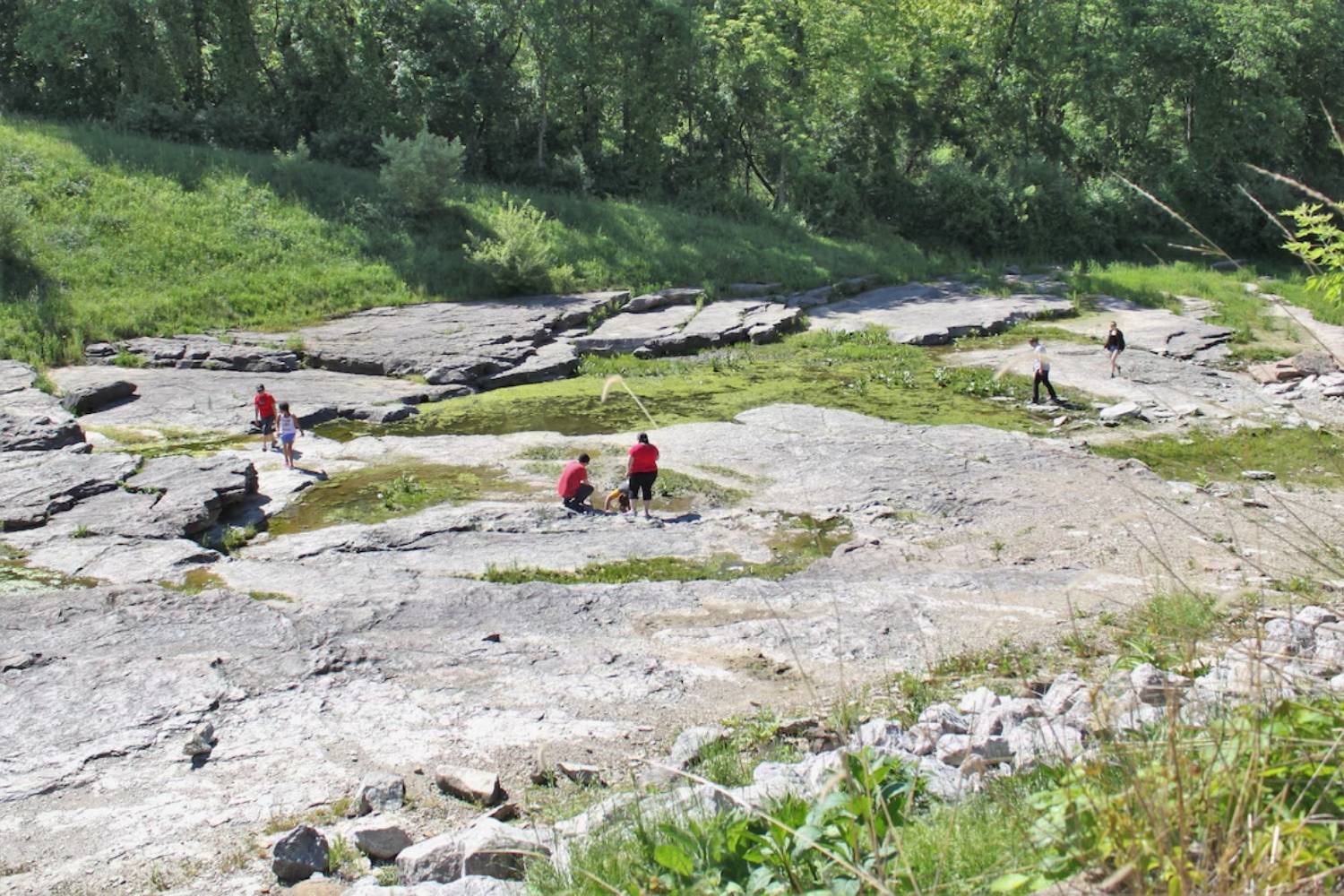Hidden Fossil Coral Reefs Of Iowa’s Devonian Gorge

Did you know Iowa has ancient coral reefs? Devonian Gorge in Coralville reveals a hidden world from 375 million years ago. This spot, uncovered by a flood in 1993, showcases fossilized coral reefs from the Devonian period. Walking through the gorge, you can see remnants of marine life that once thrived in a warm, shallow sea. Imagine touching rocks that were once vibrant coral reefs teeming with life. It's like stepping into a natural history museum without walls. Whether you're a geology enthusiast or just curious, Devonian Gorge offers a unique glimpse into Earth's distant past.
Discovering Iowa's Devonian Gorge
Iowa might not be the first place that comes to mind when thinking about coral reefs, but hidden beneath its rolling plains lies a geological wonder. The Devonian Gorge, located near Coralville, Iowa, is home to ancient fossil coral reefs dating back over 375 million years. These reefs offer a unique glimpse into Earth's distant past, showcasing the rich marine life that once thrived in what is now the Midwest.
The Formation of the Devonian Gorge
The Devonian Gorge was formed during the Devonian period, a time when much of North America was covered by a shallow sea. Over millions of years, the remains of marine organisms, including corals, accumulated on the sea floor, eventually forming extensive reef structures. Today, these fossilized reefs are exposed, providing a fascinating window into ancient marine ecosystems.
Exploring the Fossil Coral Reefs
Visiting the Devonian Gorge is like stepping back in time. The exposed rock layers reveal a wealth of fossilized corals, each telling a story of the vibrant marine life that once inhabited the area. Here are some of the most notable fossil coral reefs you can find in the gorge:
The Coralville Reef
- Located near the Coralville Lake spillway, this reef is one of the most accessible and well-preserved fossil coral reefs in the gorge. Visitors can see a variety of fossilized corals, including horn corals and colonial corals, embedded in the limestone.
The Devonian Fossil Gorge
- This area was exposed during the floods of 1993 and 2008, revealing a stunning array of fossilized corals and other marine life. The gorge features interpretive signs and trails, making it easy for visitors to explore and learn about the ancient reef ecosystem.
The Rock Island Rapids Reef
- Located near the Iowa River, this reef is known for its large, well-preserved coral heads. The site offers a unique opportunity to see the intricate structures of ancient corals up close.
The Cedar Valley Reef
- This reef is part of the Cedar Valley Group, a geological formation that spans much of eastern Iowa. The Cedar Valley Reef is notable for its diverse array of fossilized corals, including tabulate and rugose corals.
The Silurian Reef
- Although not part of the Devonian period, the Silurian Reef is worth mentioning for its impressive fossilized coral structures. Located near the town of Anamosa, this reef dates back to the Silurian period, around 430 million years ago.
Tips for Visiting the Devonian Gorge
Exploring the Devonian Gorge and its fossil coral reefs can be a rewarding experience. Here are some tips to make the most of your visit:
- Wear sturdy shoes: The terrain can be rocky and uneven, so good footwear is essential.
- Bring a magnifying glass: A magnifying glass can help you see the intricate details of the fossilized corals.
- Respect the site: Fossils are protected by law, so take only photographs and leave the fossils for others to enjoy.
- Visit the Coralville Lake Visitor Center: The visitor center offers exhibits and information about the geology and history of the area.
The Importance of Fossil Coral Reefs
Fossil coral reefs like those in the Devonian Gorge are more than just geological curiosities. They provide valuable insights into ancient marine ecosystems and help scientists understand how life on Earth has evolved over millions of years. By studying these reefs, researchers can learn about past climate conditions, sea levels, and biodiversity, which can inform our understanding of current and future environmental changes.
Conclusion
The hidden fossil coral reefs of Iowa's Devonian Gorge offer a fascinating glimpse into Earth's distant past. Whether you're a geology enthusiast, a history buff, or simply curious about the natural world, a visit to the Devonian Gorge is sure to be an unforgettable experience.
Discovering Iowa's Ancient Wonders
Iowa's Devonian Gorge offers a unique glimpse into Earth's distant past. The hidden fossil coral reefs here are not just geological formations; they are windows into an ancient ocean that once covered the region. Walking through the gorge, you can see fossilized corals, brachiopods, and other marine life that thrived 375 million years ago. This site is a treasure for geology enthusiasts, students, and anyone curious about our planet's history. Exploring these ancient reefs provides a tangible connection to the past, making it a must-visit for anyone in the area. So next time you're in Iowa, take a trip to the Devonian Gorge and witness the fossilized remains of a long-lost world. It's an experience that brings history to life, right under your feet.

